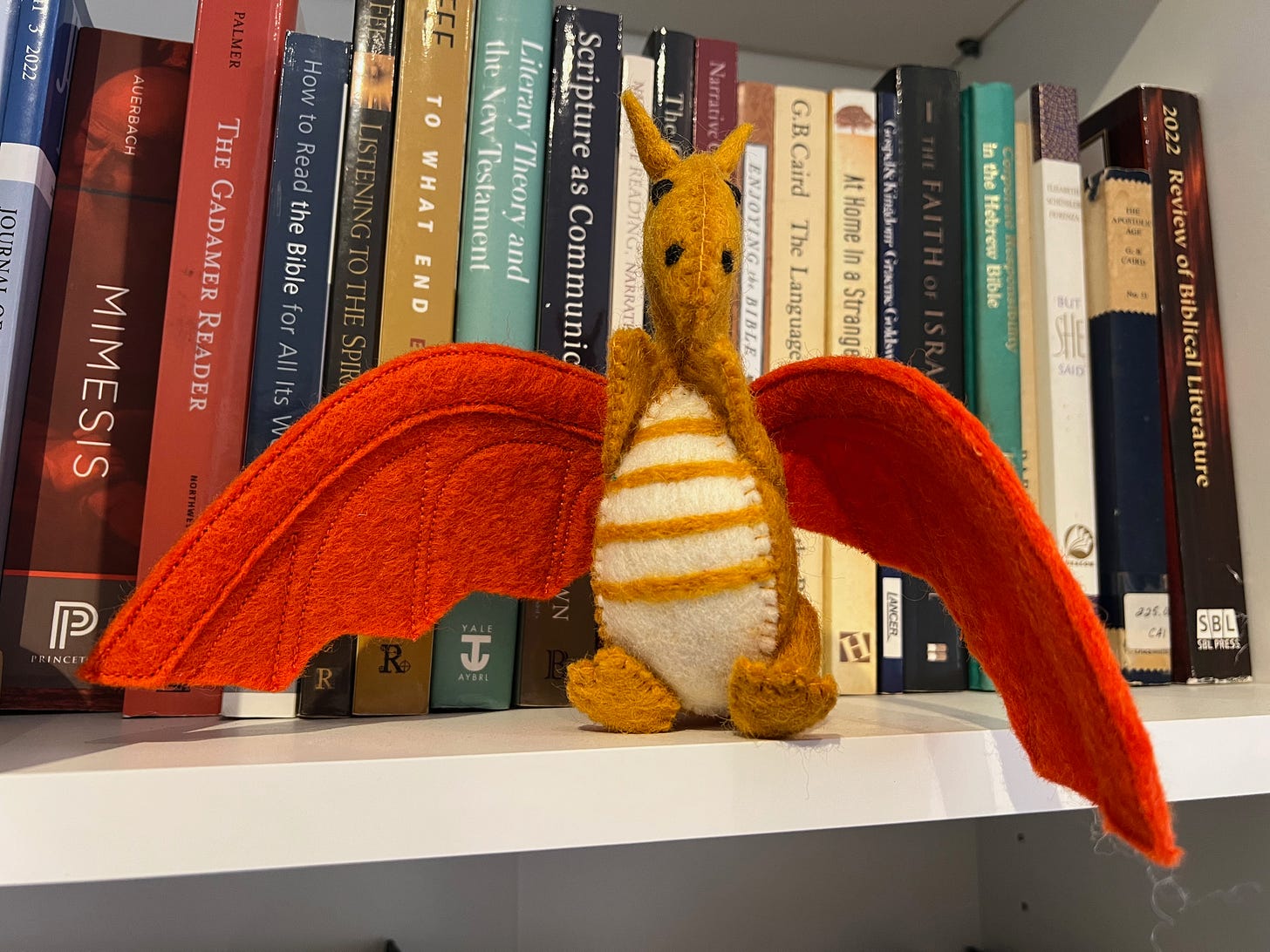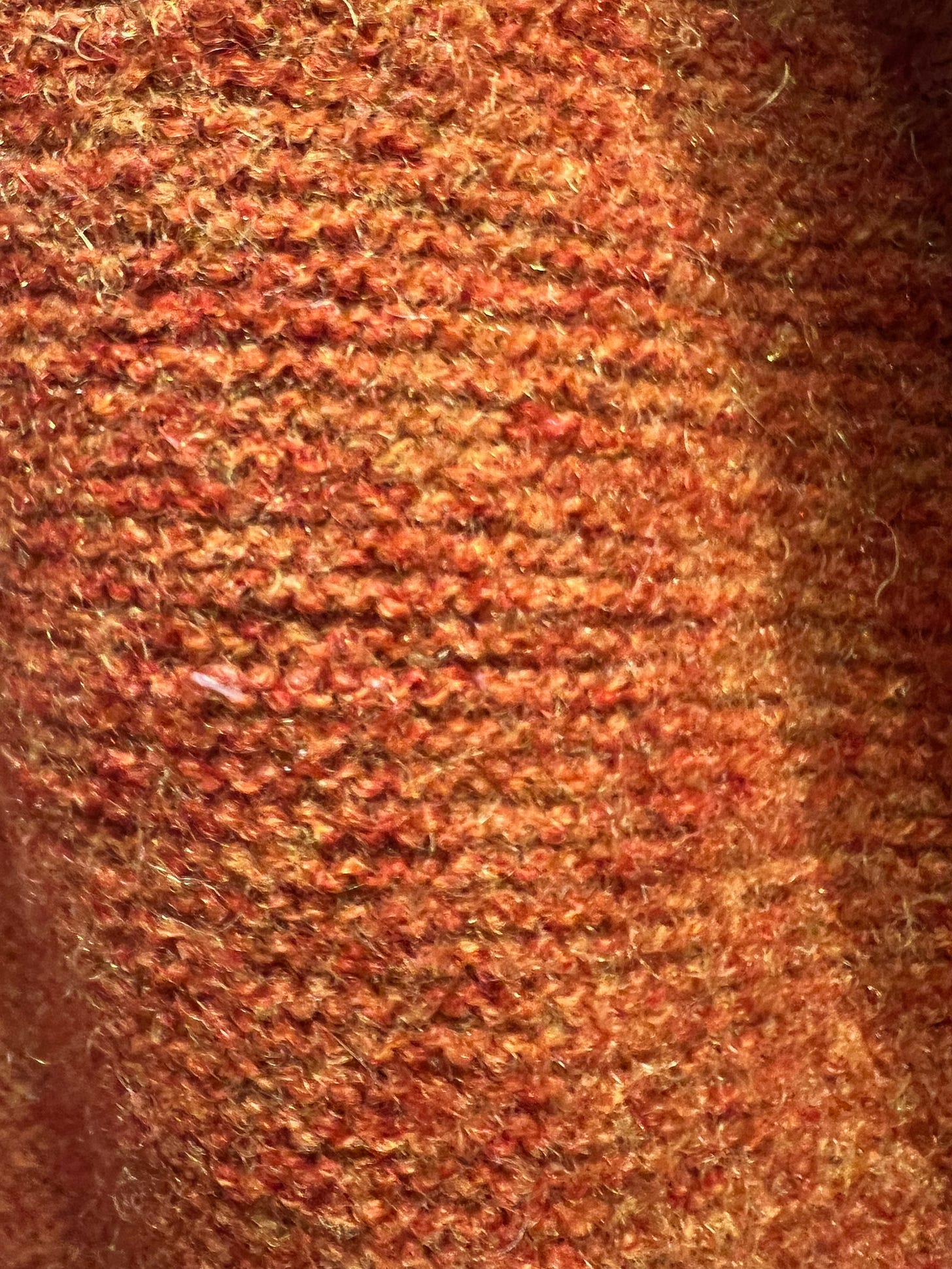Refining and Fulling Peace
A sermon on Luke 3:1-7, Malachi 3:1-14 and Song of Zechariah for Advent 2, 2024, Preached at St Paul's, Ashgrove
What image do you have in your mind when you think of peace?
Perhaps it is a tranquil lake with tall trees and fluffy white clouds reflected in water that is perfectly still, except for V-shaped ripples that trail behind a family of swans.
Perhaps it is a glass of wine in the bath after a long day.
Perhaps it is a ceasefire that actually holds.
I’m guessing it is probably not a funny looking man in strange clothes shouting that we are all a brood of vipers. Yet every year Advent 2 calls us to hold those two images together:
Peace and prophesy.
Accusation and reconciliation.
Truth-telling and harmony.
John the Baptist appears as fulfilment of a whole pile of prophesies about someone who will go before the Lord to prepare the way. We have three today. One from Malachi, one from Isaiah, and one from his dad, Zechariah.
Notice that they all speak of preparing the way for the Lord, or the Most High: Not for a messiah or a monarch or another prophet, but for the Lord – for God. The implication is that when Jesus turns up that IS God suddenly coming to the temple.
This is what the people at the end of the Jewish Scriptures, where Malachi appears, have been longing for. The temple where God was seen to dwell was destroyed. Now they have rebuilt it. But where is God? They are still waiting, longing for the day when God will fill that building and transform their lives with glory.
And sometimes we feel a bit like that too, don’t we? Like we have done our bit. Done what is required. Come to church. Prayed. Read our Bibles. Tried to live honestly and kindly. But God still feels absent. So, we long for God to suddenly come to the temple. And fill it with glory – or at least with peace.
The message of Malachi is that maybe the people are not as ready for God’s appearing as they think. Maybe they need someone to help them get ready. Someone to do with them what refining does to metal or what fulling does to fabric.
We all know what that means, right?
Probably not. I am going to have a go at explaining them, but if you know about this stuff and I make a mess of the explanation, please set me straight.
Metal, I understand, can be refined by being heated until it melts and then heated some more until the all bits and pieces that are not the metal are removed. This lump of rock is unrefined gold. The internet says it is, so it must be true:
It is gold with a heap of other things mixed in. It isn’t shiny and doesn’t have any of the other properties we know and love in gold. If I heated it past a thousand degrees, then those other things that are not gold would either burn off or rise to the top where they can be poured off. And what is left is all gold - properly itself – able to fulfil its function without impediment.
This is the most common image for God’s judgment in the Bible. God’s judgement is never about harming people. It is not retributive – not about punishing. It is always about helping us be properly ourselves, without impediment. It might hurt. But it is not meant to harm us. It is meant to heal us.
And so, the prophets do more than warning people of the judgment to come. They call people to acts of self-refinement, to do the work themselves of becoming properly who they are, without impediment. That is, the prophets call the people to repent.
T. S. Eliot's last poem, Little Gidding, speaks of this:
The dove descending breaks the air With flame of incandescent terror Of which the tongues declare The one discharge from sin and error. The only hope, or else despair Lies in the choice of pyre or pyre- To be redeemed from fire by fire. Who then devised the torment? Love. Love is the unfamiliar Name Behind the hands that wove The intolerable shirt of flame Which human power cannot remove. We only live, only suspire Consumed by either fire or fire.
As we consider the choice between fire and fire – between the refining work of God and our own self-refining work – we realise both are actually the work of God. All refining is God’s work. And the name of all of it is Love. So, it is conceivable that we might invite God to come as judge, even long for God to come as judge. Because we want to be properly ourselves, without impediment.
That’s refining. Fulling is a bit more unfamiliar to most of us.
If you have been to a craft market in the last few years you will have noticed that felting has become a big thing. My daughter bought be this beautiful felted dragon at a market this year.
Felting is where the wool fibres are encouraged to mat together into a sheet of fabric or into a shape.
Fulling is a bit like felting but it is done to fabric that is already woven or knitted. The wet, soapy fabric is beaten to encouraged the fibres to mat together. By a coincidence of Biblical proportions, I bought this jacket second hand at the same market as the dragon.
It is really warm and somewhat waterproof because it was knitted and then “fulled”. So it is thicker than if it were just knitted, and there are no spaces between the stitches because the spaces have all been filled up with matted fibres.
I don’t get to wear this often in Brisbane, but it is useful when I visit the Southern states.
Fulling is about closing the gaps between fibres to make fabric thicker, warmer and more waterproof. It makes the fabric more whole. More integrated. Of one piece without holes of gaps.
So how is this like God’s judgement? Well, God wants to make us more whole, more integrated, to close the gaps in our character where selfishness and resentment slip through. The process might hurt – but it is not designed to harm us but to heal us.
Now we tend to be such individualists that we only think of those processes happening to each of us separately. But that is not how the Bible talks about - well - just about anything. It is a community in Malachi that is being told to expect to be refined and “fulled” in preparation for the Lord to suddenly come to the temple. It is the community that needs to be refined like gold so as to be properly itself, without impediment. It is the community that needs to be “fulled” so that there are no gaps for vulnerable people to fall through.
A refined community is exactly who and what it is – so there is no worship of worthless things, and there is no deception between people. A community that has been “fulled” is made solid, so that everyone is held; everyone is safe – including day labourers, widows, orphans and refugees. (Mal 3:5)
This is the work of the one who is a voice in the wilderness, calling the community to prepare the way of the Lord. John the Baptist is calling the people to be a community that welcomes this work of God – that longs to be refined and ‘fulled’ – that wants to be exactly who is was created to be, without impediments; and wants to be whole and integrated, with no gaps for vulnerable people to fall through.
And John the Baptist’s dad says that this sort of community will know salvation and forgiveness, will experience the tender compassion of God, will be a light for all who are experiencing darkness. And this will be a community in which everybody walks in the way of peace.
Of course they walk in peace. They are totally who they are, without impediment or deceit. They are totally integrated without gaps for people to fall through.
The judgment of God might be painful, but it leads to peace. That is what it is for. Not to cause harm but to bring peace. That is what the Law was always about. Peace. Love that brings peace.
So, if we want peace, we invite the refining and fulling work of God. We invite it in our own lives, in the church and in the world. So, we pray for that and co-operate with that.
And just as this has always been the work of prophets, so we need to pay attention to the prophets of today. We still need the voices of those odd, uncompromising people who call us to do better, to be kinder, to work together rather than against each other.
I was listening to a podcast this week with Rabbi Held who is the author of a new book called Judaism is About Love. I am keen to read this book because one of my hobbyhorses – as you all know - is challenging people who say that the Old Testament is about Law and the New Testament is about love. Anyone who has ever been in a Bible Study with me will know that. This book argues, as I do but more comprehensively, that the Law always was, is now and ever shall be all about love.
The interviewer read the last page (385), so I will pass that on to you:
A midrash tells us that when the people gathered at Sinai, they stood as one person with one heart. How, asked Rabbi Chaim Shmuelevitz, was it possible for 600,000 people with a long history of conflict and combativeness to be of one heart? When they arrived at the mountain, he explains, they began to take care of one another's needs. Concretely assisting others, in turn, taught them to love one another, thus fulfilling and embodying the mandate to love your neighbor as yourself. For that brief moment at least, the people achieved a foretaste of what the Torah demands and makes possible, a community centered on love and mutual care.
We embrace the Torah and it leads us into love.
We embrace the law of God and it forms us as a community of love.
We listen to the prophets and with them invite the refining and fulling judgment of God, upon ourselves and our communities, and that will set our feet on the path of peace, at last. Amen.
With Love from Rev Margaret









